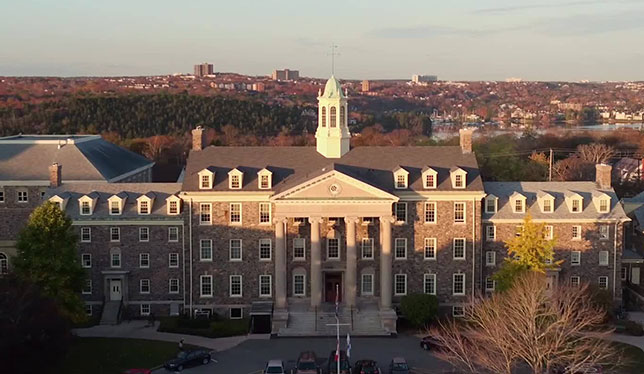What’s wrong with open searches for senior university administrators?
Why hiring committees are in the best position to make an informed decision.

A “closed” search for president became an issue at the University of Manitoba recently, after the university senate requested an open, more public, search process to fill the position (the current university president, David Barnard, will be stepping down in June 2020). The university’s board of governors – rightly, I think – turned down the request.
The Ontario Council of University Faculty Associations, in a new report, Collegial governance at Ontario universities, agreed with the U of M senate request. The report criticizes closed searches for senior university administrators, arguing that that they have “the negative impact of narrowing the type and quantity of information about candidates that can be obtained.”
“Open” searches include some public element. Usually, this is in the form of public presentations to the university community, which are followed by an opportunity to submit comments and recommendations to the search committee.
As a veteran of (too) many senior searches, open and closed, I believe that open searches are unfair to those who apply for senior administrative positions and unfair to the members of the committees – including the faculty members on such committees – appointed to conduct such searches. For a number of reasons, they are less likely to result in the best appointments.
I have never met a search consultant that favoured open searches, and it’s not because they have a vested interest in opposing them. The complexity of open searches means that search consultants are more, not less, important in such searches – and can charge more for the services that they render.
In my experience, search consultants favour closed searches because they attract a stronger and more diverse candidate pool. I have been on search committees which interviewed presidents from other universities, cabinet ministers in federal and provincial governments, provosts and other high-profile applicants for a position. In many cases, it is impossible for them to enter a public search because their candidacy could raise questions in their current institution.
Open competitions are especially challenging for internal candidates, who must enter a process which will have to include a very public scrutiny of the details of their career and everything they have done – something which must necessarily include a discussion of their flaws and shortcomings.
The scrutiny of those who apply for a position is better done within the confines of a closed search. The idea that individuals outside a search committee are in a position to make an informed contribution to a committee’s decision is at best questionable. What they are able to judge – someone’s ability to speak publicly and respond to questions on one occasion – may provide some useful information but it is not a reliable indicator of someone’s ability to serve as a successful university administrator.
Unlike the members of a search committee, those on the public side of an open search are not participants in the interviews, which provide the most detailed and in-depth opportunity to explore whether someone is a good candidate for a particular position. Unlike search committee members, those on the outside have no access to the confidential comments made by the references for a candidate, and no knowledge of key personnel issues which may play a role in a responsible decision-making process.
The representation of the board, faculty, staff and other stakeholders on search committees is a legitimate matter for discussion and debate. However, the proper way to represent stakeholders is not by having open searches that encourage input from those who are not in a position to make an informed decision, but by including members of stakeholder groups within a search committee, and by respecting the decisions that they and other committee members come to.
Leo Groarke is president of Trent University.
Featured Jobs
- Veterinary Medicine - Faculty Position (Large Animal Internal Medicine) University of Saskatchewan
- Psychology - Assistant Professor (Speech-Language Pathology)University of Victoria
- Education - (2) Assistant or Associate Professors, Teaching Scholars (Educational Leadership)Western University
- Canada Excellence Research Chair in Computational Social Science, AI, and Democracy (Associate or Full Professor)McGill University
- Business – Lecturer or Assistant Professor, 2-year term (Strategic Management) McMaster University















Post a comment
University Affairs moderates all comments according to the following guidelines. If approved, comments generally appear within one business day. We may republish particularly insightful remarks in our print edition or elsewhere.
3 Comments
The problem with these arguments is that they apply to faculty as well, not just administrators. Faculty who are already in a tenured, or worse, tenure-track, position, will face the same difficulties at their existing institution and doubts about their commitment to that institution if they do not end up getting the new position. And they will face the same public scrutiny of their professional work, whether they be internal or external. In fact, I would argue that it is *more* important to subject senior administrative candidates to such public scrutiny than faculty, because how they handle the “heat” and the political aspects of the act of candidacy will be very telling about how they handle those kinds of pressures and awkward conflicts once in a position that may well have a constant barrage of them.
I agree with the presidents article. As as a chair and member of a number search committees at universities, associations ,and governmental crown corporations the best candidates shy away from public competitions. Most usually they have careers that are secure and well respected and often are interviewing the organization as well as being considered for the position. Generally search committees respect privacy. Unfortunately governments are the worst offenders. Sometimes candidates applying for senior positions such as judgeships find their names in the newspaper at very preliminary private discussion stages. The key is that any search committee should be made up of a cross section of the organization so that there is a diversity of points of view . Jon Grant
I have been a colleague of Leo and I respect his opinion. I have also served on many search committees and have been a senator for many years.
I would disagree with Leo on one aspect. Having been on many open search committees, faculty are more willing to accept internal candidates when they have had the chance to interact with both internal and external candidates.
Our last presidential search was a closed search and an internal candidate was hired. Following from above and based on my discussions with my colleagues in my faculty and on Senate, this disadvantaged the candidate upon assuming their role. I think they had less support than they would have in an open search. This is not about the quality of the candidates but about perceptions.
We have had candidates for senior positions where we have modified the open search to be a semi closed search – In particular, instead of their name being announced campuswide, they still do focussed meetings with constituents and then do a presentation in camera at Senate. I think this is a good option. And I think this helps senators be more comfortable in endorsing a candidate, both within the confines of Senate but also supporting the new hire across the University. I would suggest this as an eternity to a completely closed search.